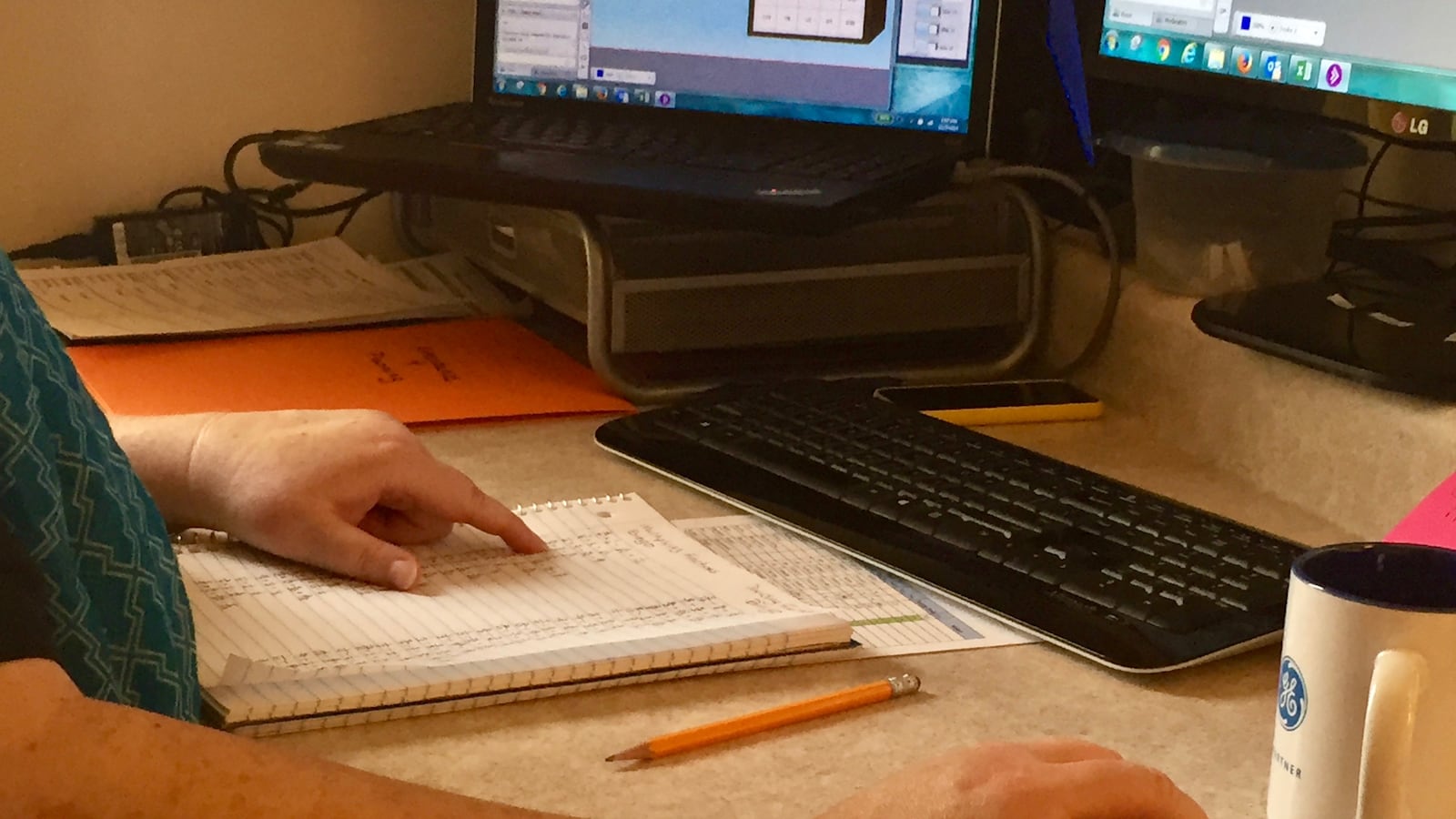Indiana lawmakers have killed three attempts to tighten the state’s charter school authorizing laws, even after Gov. Eric Holcomb called for improved accountability of troubled online charter schools.
A Chalkbeat investigation of Indiana Virtual School last year revealed how state law doesn’t go far enough to hold operators and authorizers of online charter schools accountable. The probe found that Indiana Virtual posted dismal academic results, hired few teachers, and had spending and business practices that raised ethical questions.
But with proposals to tighten regulations facing pushback from influential education advocates, Republican lawmakers — many of whom benefit from online schools’ lobbying and campaign contributions — say there’s little interest in making changes.
“I’m surprised myself,” said Sen. Dennis Kruse, the Republican Senate Education Committee chairman who authored one of the charter school bills. “People from all different walks of life had concerns about different parts of the bill. Nobody came to me and said, ‘This is a great bill, go ahead and proceed with the bill.’”
Still, Holcomb is taking other steps to strengthen virtual charter school policy. With the Indiana State Board of Education, Holcomb’s team has been collecting information on best practices in virtual schools across the country.
PJ McGrew, the governor’s education policy director, said he hopes to have a plan to revise virtual school policies for the state board to consider in the spring. It could take about a year for the board to change that policy if they decide to move forward.
Lawmakers’ hesitation isn’t really surprising: Indiana has made sweeping changes to expand school choice, and Republican leaders have seldom supported laws that would restrict choice — even when issues are raised.
Rep. Bob Behning, the chairman of the influential House Education Committee who has long advocated for charter schools and new school models, said he doesn’t want to “jump into something, making a judgment, without knowing what the answers are.”
He also pointed out that it isn’t always clear how the state should hold schools accountable in practice because education law can be difficult to enforce: “There is no education police.”
“I definitely see there are some alarms that we need to be focused on and alerted to,” Behning said. “But there are similar alarms in traditional public schools going off all over the place as well. That’s the place I think we do struggle with. At what point in time is it appropriate for us to intervene?”
None of the bills proposed by lawmakers this year dealt directly with virtual schools, applying instead to charter schools as a whole. And none of them received any hearings.
Kruse’s proposal, Senate Bill 350, would have effectively prevented struggling online charter schools — or any charter school — from easily replicating. It would have stopped an authorizer from offering a new charter to an existing organizer unless its current students are achieving academically.
Three of Indiana’s largest online charter schools, including Indiana Virtual School, have recently opened second schools, which could help them stay in business if their first schools get shut down after years of poor performance
Two other proposals from Democrats, Senate Bills 315 and 406, went much further in dictating the results charter schools must show to enroll new students and open new schools.
Sen. Mark Stoops, a Bloomington Democrat who proposed Senate Bill 315, said for his caucus, examining whether charter schools need more regulation and oversight has been a recurring priority.
“It isn’t a difficult question,” he said. “It just needs to be done.”
But lawmakers would be up against the charter school movement’s money and influence.
Indiana lawmakers, including Behning and Kruse, have seen campaign contributions from online education companies. K12 Inc., one of the largest online education providers in the country, has given more than $90,000 to Indiana Republican races since 2006, according to the state campaign contribution database. Connections, another large national provider, has given more than $20,000.
Those online providers, who operate five online charter schools in Indiana, also have spent tens of thousands of dollars each year for the last decade lobbying lawmakers.
Indiana Virtual School has also recently started lobbying lawmakers in Indiana. Tom Stoughton, the founder of Indiana Virtual School, was listed as a registered lobbyist for the school in January, even as school officials say he has distanced himself from the school. Stoughton’s involvement with the school’s for-profit management company has raised ethical questions.
In the first filing period for 2017, Indiana Virtual School spent almost $12,000 on lobbying, according to data from the Indiana Lobby Registration Commission. In 2016, IVS spent a little more than $13,300.
Prominent charter school advocates can wield influence outside of lobbying, too. They have said they fear more prescriptive laws could hem in successful schools and authorizers, even though they have agreed that virtual schools, specifically, need more attention and oversight.
“Specific rules written to restrict the decisions of authorizers will not transform bad authorizers into high-quality authorizers,” David Harris, CEO of The Mind Trust, told Chalkbeat in January.
The National Association for Charter School Authorizers recommends that states consider virtual-specific policies, such as completion-based funding, making enrollment more selective, or even making them a different kind of non-charter school so enrollment and governance can be more controlled.
Indiana falls short when it comes to virtual school regulation, according to the association’s most recent report, even as the state is praised for having the strongest charter school laws in the nation. For the third year in a row, the group ranked Indiana No. 1.
Mike Petrilli, executive director of the Fordham Foundation, a conservative think tank that supports access to charter schools, has spoken in favor of making virtual schools a separate school type.
“We’ve got to turn this on its head,” Petrilli said. “It would be hard to do it within the general charter school rules which say you’ve got to take everybody … What we have learned is the charter school model and online learning are not a good fit for each other.”

